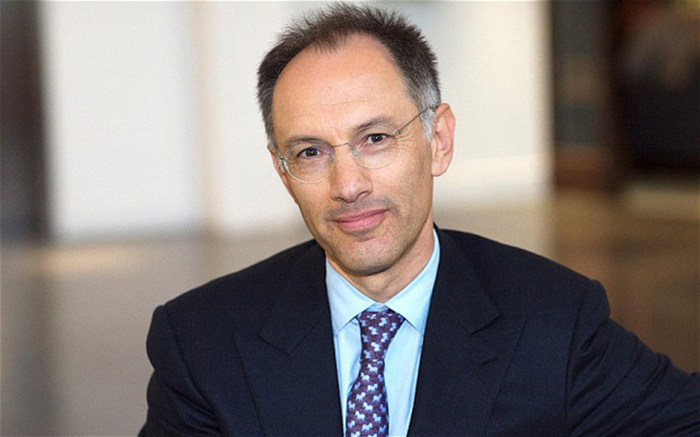Legendary investor Michael Moritz: "People underestimate China, especially in Europe"

Sir Michael Moritz, president of one of the largest and most famous venture capital funds in the world, believes that the West underestimates the size and scale of Chinese technology companies. The head of Sequoia Capital emphasizes that 7 of the 21 largest technology companies in the world are Chinese. As an example of large IT companies, Moritz named Huawei, Alibaba and Tencent.
“People underestimate China, especially in Europe,” said an Oxford graduate from Ireland who now lives in San Francisco. "They, as a rule, do not even imagine the size, power and scale of Chinese technology companies."
"To realize the present state of affairs takes a long time, and therefore most people have a distorted view of China, which is more like what country was 20 years ago."
')
Sequoia was founded in 1972 and over the years of its existence has invested in startups, the total value of which is now estimated at 1.4 trillion dollars (or 930 billion pounds), which is equivalent to 22% of the cost of Nasdaq, according to Forbes analyst.
Sequoia, headquartered on Sand Hill Road in Palo Alto (California), builds its reputation by investing in many of America’s extremely successful technology companies in the early stages of their development. Among such companies are Google, Apple, Facebook and Yahoo. But now the company seems to be expanding its horizons, and the company invests more than 50% of its funds in foreign projects, and not in the US, as Moritz himself asserts.
Mortis says: “A big market is a huge number of extremely talented people and remarkable ambitions,” and these two factors are the main reasons for the growth of Chinese technology companies to mega-corporations with huge revenues and profits. ”
Scottish startup Skyscanner is one of the non-US projects that receives investments from Sequoia. This is a platform that allows people to find flights and book plane tickets, as well as book hotels and rent cars. Curiously, Skyscanner is one of the notable players in the Chinese market.
Skyscanner employs more than 800 people worldwide. 45 employees work in Shenzhen and Beijing, where the company performs under a different name "Tianxun".
“Not many British technology companies are doing business in China, and Skyscanner is one of them,” says Moritz, who was in the top position in the Midas list of the best investors of 2007.
Skiscanner CTO Alistair Hann states: “We believe that to create the best site for Chinese travelers, you need to develop a product in China by experienced professionals who understand the needs of Chinese travelers. Our company has two offices in this country.
“Our product is tailored to the needs of Chinese customers. For example, in-app payment is the norm for China, so we accept payment through Alipay. In China, we are still growing at a tremendous rate. Compared to 2013, the number of visitors to our website in China increased by 207%, and customers using the mobile version of the service increased by 397%. ”
Despite the fact that Skyscanner already has two offices in China, the company only received a round of funding to open a new office in London, where he hopes to join the city’s established technical network and hire up to 28 people to his headquarters.
Source: https://habr.com/ru/post/296732/
All Articles